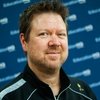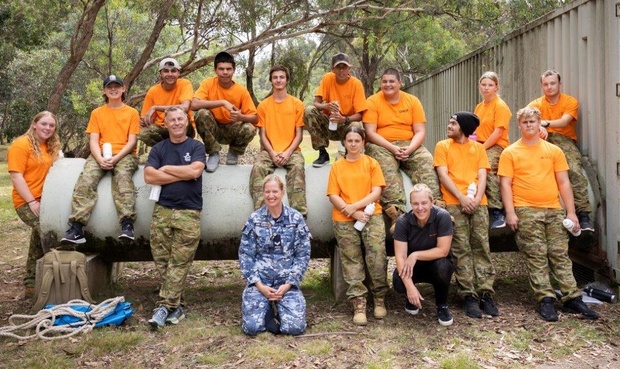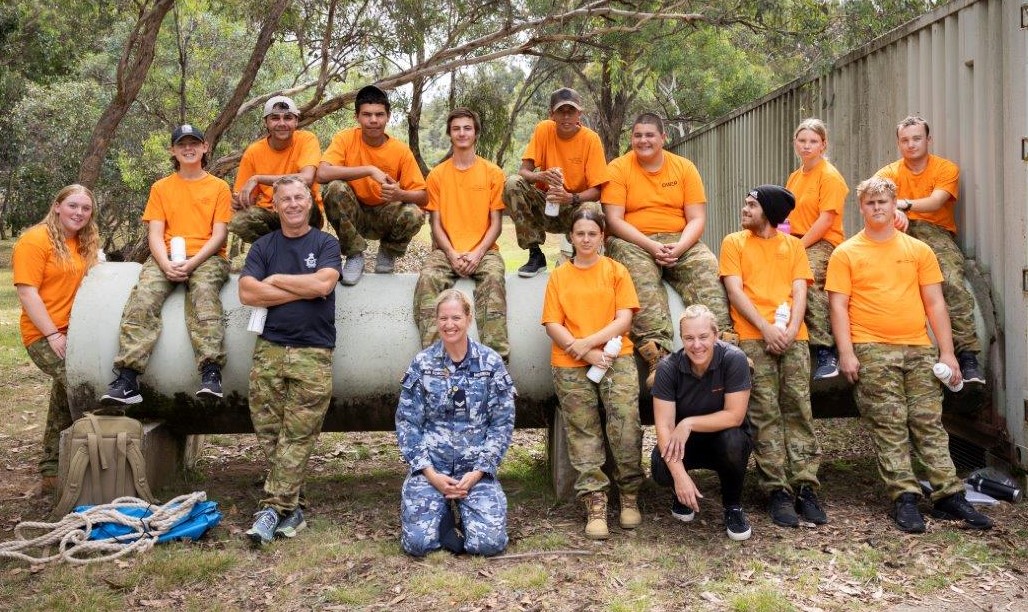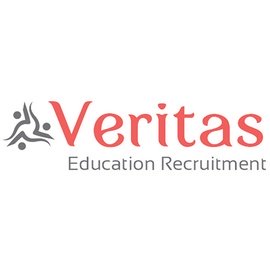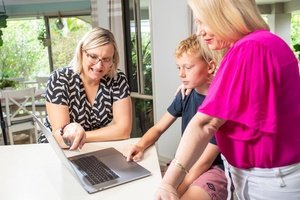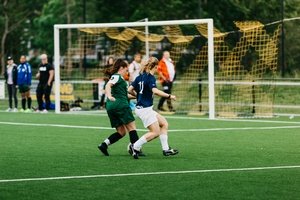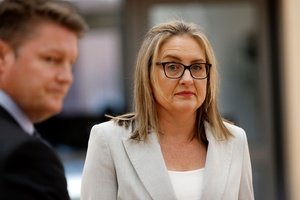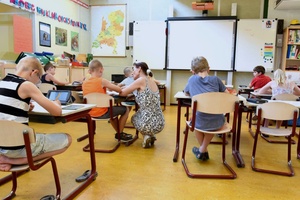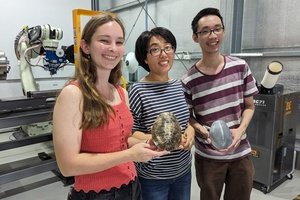Called the Indigenous Youth Program, the initiative is a collaboration between the ADF and the NSW Government’s Educational Pathways Program (EPP) which provides Indigenous students with a first-hand look at training and employment opportunities within Defence.
During the week-long program across NSW and ACT Defence sites, students from the Walgett and Lightning Ridge region immersed themselves in Defence culture, learning about careers and taking on activities such as sea survival skills at HMAS Albatross and the over-water obstacle course at the Australian Defence Force Academy.
Tim Wykes is head teacher of the EPP and he’s been thrilled with the success of the first rollout of the program, which involved 12 Year 10-12 students ranging in age from 16-18 – two from Goodooga, nine from Lightning Ridge, and one boy from Walgett.
“It all started from a cold call to a woman at the ADF and it just grew and grew,” Wykes tells EducationHQ.
“One of the presenters (on our trip), and one of the main drivers, was an ex-student of mine from Wagga – an Indigenous student. We had a meeting in January and a coffee and got it happening.”
The width and breadth of experiences the students enjoyed were quite extraordinary – with the students experiencing Army, Navy and Air Force facilities in Canberra, Nowra and Wagga Wagga.
“I think there’s around 280 different occupations in the ADF, so some of these kids, instead of thinking about being a pilot, a soldier or a sailor, this was a great opportunity for them to get a much better idea of the many options open to them,” Wykes says.
He says the role of EPP is to highlight to these kids what’s out there, but also what are the processes to get to that end point.
“Like some of them will need either tertiary education or other formal qualification, so really, if you plant the seed early enough through the EPP process – because research is showing that the earlier kids are engaged in career choices – the better choice they’ll make.”
Wykes says nothing could have prepared he and his students for what the ADF had in store for them.
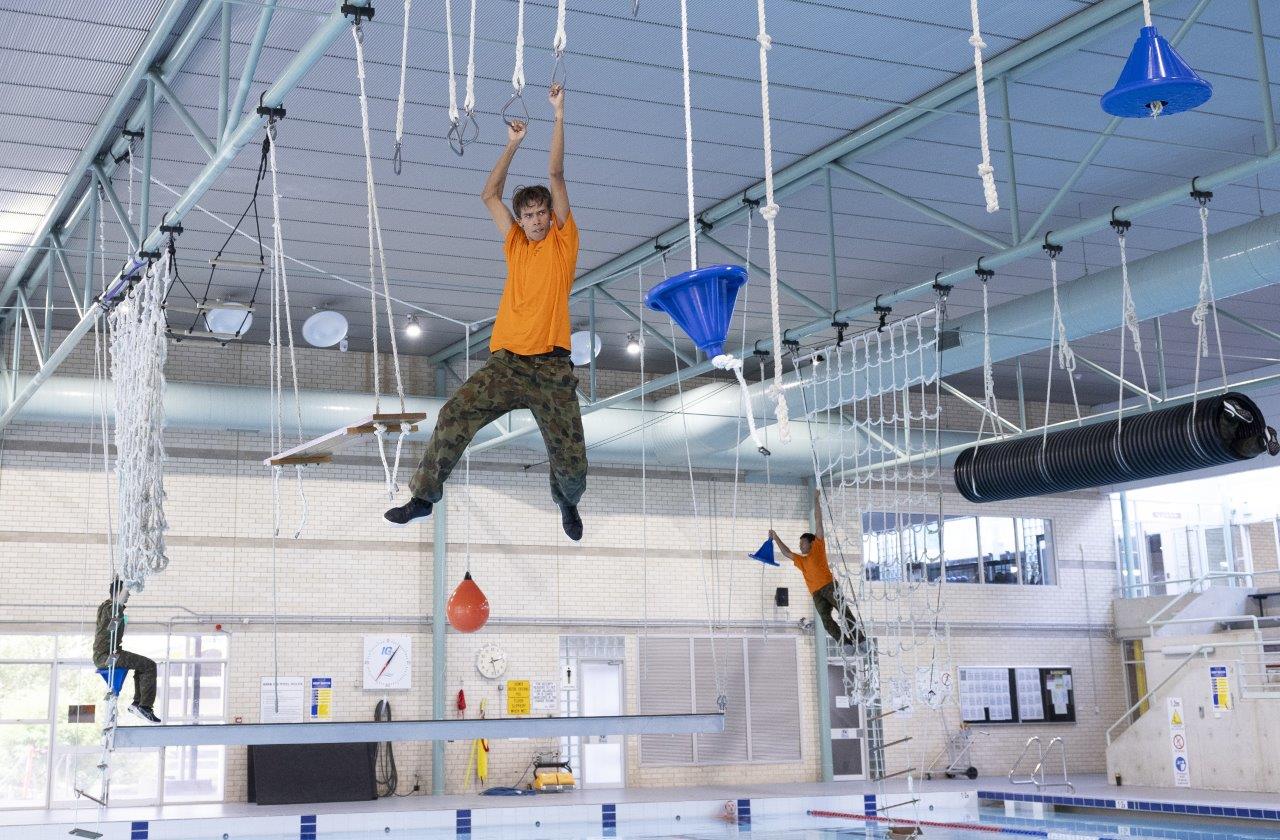
“I know its in its early stages, but I reckon, in 15 years time, if you come back and see these kids, they'll be doing well, their households will be doing well,” Wykes says. “In terms of the big picture, of closing the gap, this sort of stuff is really fundamental to that whole process.”
“We got to experience aircraft simulators, we were in the Prime Minister’s plane, we toured through workshops, took part in challenging PT sessions and went to the fire station,” he says, almost incredulously.
“We were up at 6am to march to breakfast at 6.30, and then later at the Australian Defence Force Academy in Canberra we were rock climbing, we did a tunnels course, we did an over-water obstacle course and they even had a ceremonial band practice in front of us.”
During their week, the students also attended the Australian War Memorial, took part in a Last Post ceremony, visited the Indigenous Memorial on the lawns, and later attended the Navy base at Nowra where they took part in a water rescue course that simulates when a helicopter hard lands into water and capsizes.
“So we were jumping off six-metre platforms there, we experienced more simulators, and saw the technical side of how they operate. So, they really pulled out all the bells and whistles,” Wykes says.
The benefits of this type of exposure to potential career choices cannot be overestimated he says.
“Like all of the EPP stuff we provide, it’s hands on, it’s actually experiencing what these careers are about,” he says.
“For these guys to be up at six in the morning and marching to breakfast, that’s the reality of the role.
“They weren’t barked at and yelled at – it wasn’t like drill camp, but they followed the routine, they did the basic fitness requirements, they did all the stuff that a cadet or recruit would do – and they got a deep understanding of what the occupation is about.”
Wykes says it was also, importantly, who they spoke to.
“There were a lot of one on one conversations,” he says.
“So the kids could ask questions pertinent to them – the Indigenous kids spoke to Indigenous people, the girls spoke to women, so they could really ask those questions that were relevant specifically to them, and they got that really in-depth understanding.”
The participatory nature of the trip resonated strongly with the students.
“The program pushed the students out of their comfort zones and encouraged them to apply teamwork, leadership and communication skills,” Wykes says.
“It was great to see them still buzzing with excitement long after the bus ride home.”
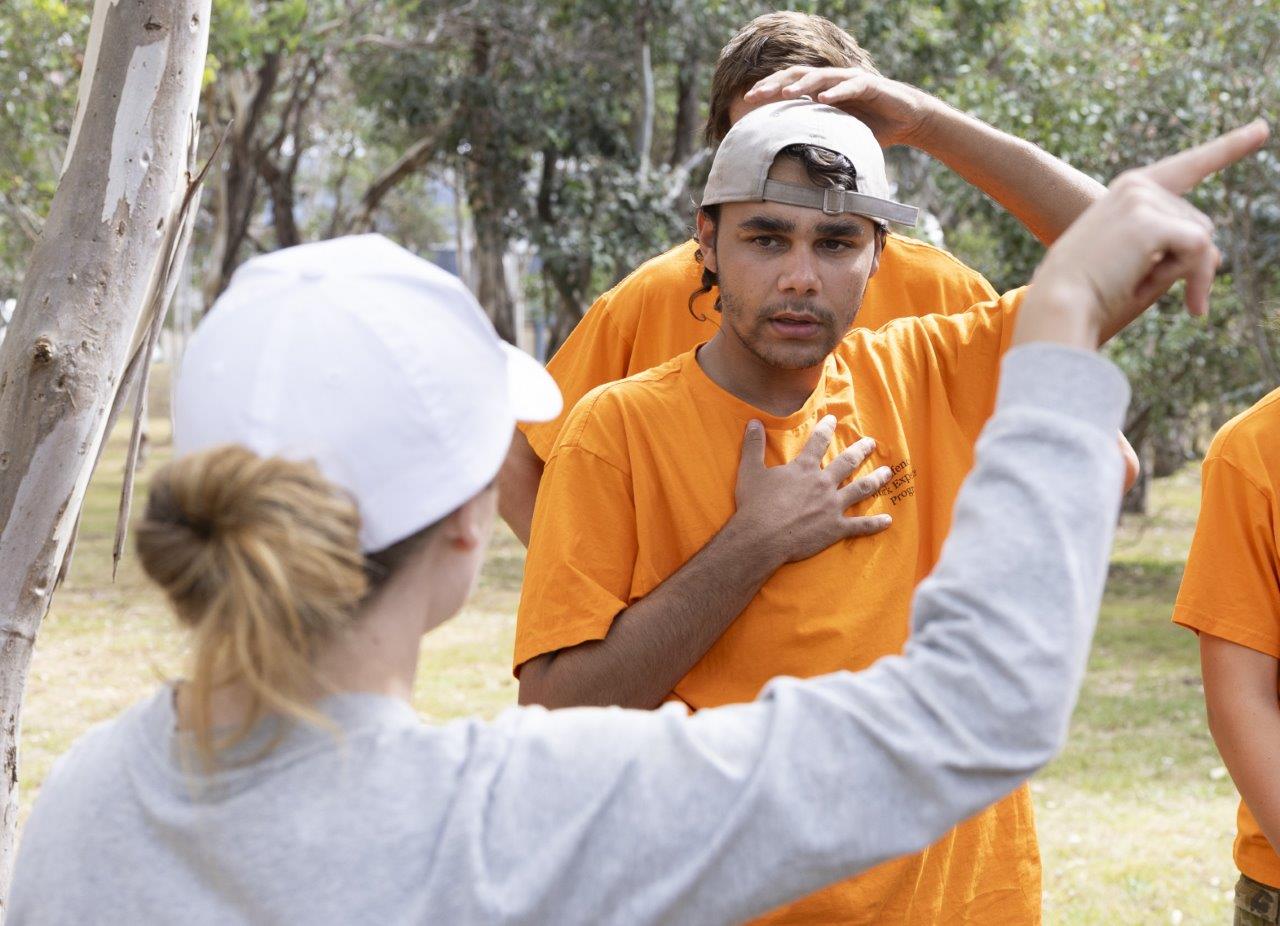
Students participating in the program are in Years 10-12 (16-18 years old) and were approached to take part if their personal learning and support plan, or their career action plan, indicated that they were interested in the Australian Defence Force.
From the ADF’s perspective, they clearly view this as more than a worthwhile pilot for what will hopefully go from strength to strength.
Manager for Defence Work Experience ACT and Southern NSW, Isabel Massey, says it was a privilege to meet and spend a week with the students.
“It was inspiring to see them taking on leadership roles and achieving things they may not have previously thought possible,” she says.
Wykes explains that the program is indicative of the great work those in his department are doing in remote areas of NSW for students deciding on their future careers.
“EPP breaks down those barriers, either the cultural inclusion or the geographic isolation, and the whole process is embedded for the kid so then, by stage six, they can make an informed decision.
“Putting little trips on like this one for the defence force, is like the icing on the cake – the hope is they’re rock solid in thinking ‘this is what I want to do, because I’ve seen it firsthand’.”
Only time will tell whether the students will choose careers with the ADF, but in their talk afterwards, and feedback from their teachers, they spoke of how engaged they were and how positive they were feeling about the whole process.
There are already talks taking place about how they can improve on the program next year, to fine tune it and make it more widely available to more Indigenous kids, but it’ll have to be without Wyke, who has just concluded his time in teaching after 34 years, to pursue a coaching role with an NRL team.
“I’m 56, so I’ve got more in the revision mirror than I have in the windscreen, but we’ll see how we go,” he says.
For more information more broadly about the Defence Work Experience Program and the wide variety of pathways into Defence, click here.
